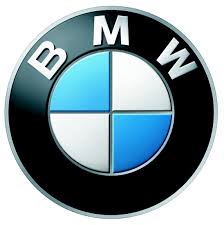5 Series E61 530d (M57TU) TOUR

-
Pistons with piston rings
-
Valve stem seals
-
Crankcase ventilation
The surface topography of the cylinder liners and piston rings is the primary variable that directly influences engine oil
consumption, as the piston rings do not provide perfect sealing, but rather form a metering mechanism. In the
configuration, there is a conflict of interests between engine oil consumption and friction reduction. The latter has a
direct effect on power output and fuel consumption. With every stroke of the piston, minimal quantities of engine oil
remain on the cylinder walls. These are indispensable for lubricating the piston rings (see lubricating film above). As
the piston moves downwards, the engine oil on the cylinder wall is plays a role in combustion close to the walls and is
then expelled along with the combustion exhaust gases. The higher the engine speed, the greater the effect,
because there are more combustion cycles for each time unit. For this reason, engines with a high-speed concept
(BMW M engines) tend to have higher engine oil consumption than other BMW engines. The same applies to the
lubricating film on the valve stems.
Note:
For BMW spark-ignition and diesel engines, the maximum permissible engine oil consumption is 0.7 l/1000
km.
Because of their increased power output and torque, M engines have a maximum permissible oil
consumption of 1.5 l/1000 km.
The measurable result in engine oil consumption is primarily influenced by the quality of the fuel used and the driving
profile. For example, if in the winter you drive a lot for short distances (= high fuel entrainment as the evaporation
temperature is mostly only reached briefly) and then a long distance (fuel can then evaporate readily), this journey will
cause a considerable drop in engine oil level. This is not engine oil consumption, but rather a change in engine oil
level caused by the fuel content in the engine oil. Customer complaints are often the result of this effect. It can
happen that the engine oil level drops by more than 1 litre after driving just a few hundred kilometres. Moreover, the
measuring system on some engines (dipstick/QLT) have a tolerance of up to 0.3 litres.
But evaporated particles of oil also escape through the crankcase ventilation (expulsion level technically never
100 %) and plays a role in combustion with the intake air. Configuration is especially difficult here. On the one hand,
the engine oil should be expelled as completely as possible. On the other hand, crankcase pressure requirements
must be satisfied. Other expulsion systems only work optimally with a certain gas throughput, the expulsion effect
deteriorating with greater or lesser gas volumes.
Summary
It is a technical necessity that very combustion engine consumes engine oil. The level of the engine oil consumption
is greatly influenced by driving style and by the fuel used.
Measuring oil consumption
The oil consumption rate of an engine can only be determined by the customer by the amount of engine oil he or she
has had to top up.
Engine oil is added as soon as the level drops below the max. mark on the dipstick, regardless of certain
fundamental rules such as horizontal vehicle position, drain time etc. This can easily cause the level to become too
high due to the size of the container which happens to be available (e.g. 1-litre bottle).
Excess engine oil can damage the engine and is consumed more quickly due to the "splash" effect.
For this reason, our advice is to allow the engine oil level to drop as far as the min. mark before adding the required
topping up quantity.
The difference between the two marks corresponds to about 1.0 - 1.5 litres.
The procedure for checking the oil level is given in the Owner's Handbook for the vehicle concerned.
The service delegates will only deal with warranty claims if exact measurements by weighing are available (please
refer to SBS 11 07 96 138 / Enclosure 12).
SI Arguments concerning engine oil consumption BMW, MINI
BMW AG - TIS
17.02.2013 23:41
Issue status (12/2007) Valid only until next DVD is issued
Copyright
Page - 2 -
